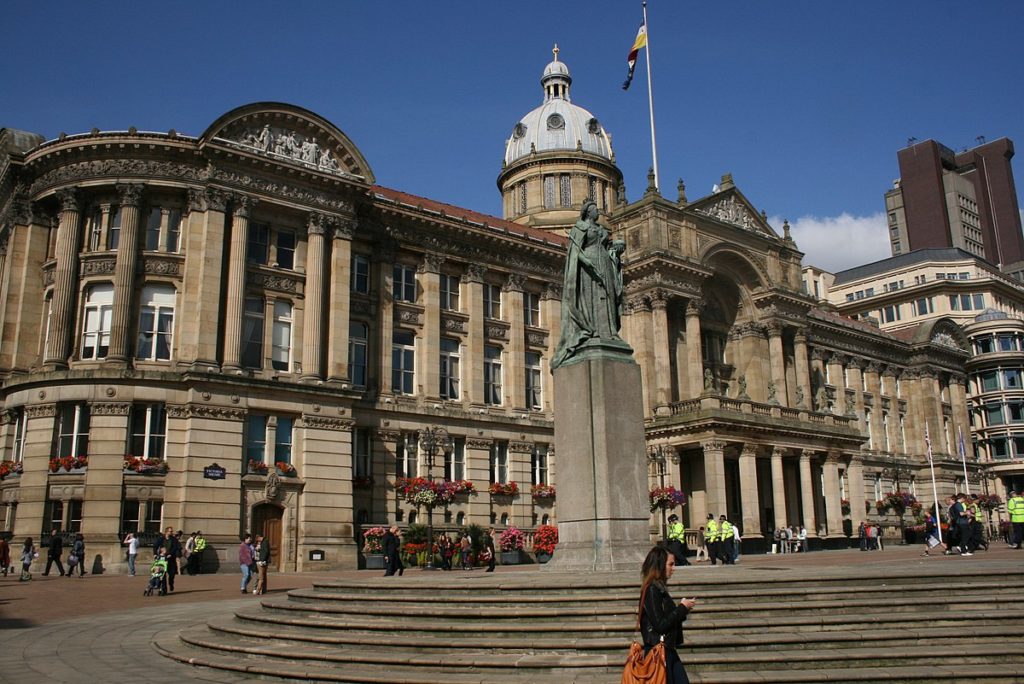
By Professor John Bryson
Professor of Enterprise and Economic Geography, The Department of Strategy and International Business, Birmingham Business School
Birmingham City Council (BCC) has found itself in a financial mess. Partly this comes from operational decisions that were made in the past and often by officers rather than elected councillors. One outcome of these decisions has been payouts that BCC needs to make that come to more than £1bn to settle an equal pay claim brought by underpaid workers.
There are many ways of interpreting this legal case and its outcome. However, the outcome continues to ricochet across Birmingham and will do so for decades. One outcome is that those BCC workers who were underpaid will now experience cutbacks in public service delivery but also BCC will have to employ far fewer workers. All living and working in Birmingham will have to cope with a vastly different public service funding environment.
There was a time when Birmingham was one of the best managed European cities. When Joseph Chamberlain was Mayor, he transformed Birmingham’s finances by “providing the leadership based on the application of commercial logic to the provision and financing of public services”. Chamberlain termed his approach as a strategy founded on ‘sagacious audacity’ (which for him occurred during a period during which there was a continual increase in expenditure and activity) and it was noted that “the next generation will have cause to bless the Town Council” and this blessing still holds true to 2024. Chamberlain’s approach included acquiring property assets that have enabled BCC to subsidise public service delivery, but more importantly to shape the physical development of the city in the interests of residents rather than just property developers and investors.
Some of Chamberlain’s legacy will be sold to ensure that BCC can balance its books. BCC now needs councillors and officials that can match Chamberlain’s sagacious audacity. This includes BCC trying to develop innovative solutions to ensure that Birmingham’s residents and businesses can thrive during this new period of localised austerity. There are many points to consider here. On the one hand, BCC needs to meet its responsibilities for the provision of mandated public services. This is the Council’s first duty to Birmingham and its people. On the other hand, BCC needs to ensure that this new wave of austerity comes with positive outcomes rather than just negatives. Cutbacks do not always have to produce only negative outcomes and can mean producing innovative and novel solutions.
A crisis is always an opportunity to reconsider existing practices and forms of public service delivery. There is an important role for residents to play here. Birmingham needs to experiment with a new balance between participatory and representative democracy. Thus, a core question to consider is: what role should BCC play in shaping Birmingham’s future and the everyday delivery of public services and what role should residents, social enterprises and businesses play in this process?
Residents, community groups and social enterprises can develop innovative approaches to place-making or place-building by responding to the ruptures and problems where they live by engaging in incremental urban infrastructure patching (explained simply as citizens deciding to undertake small scale interventions in their communities to develop solutions to problems that are being overlooked by local government). Such innovative approaches can be imagined and tested by residents and community groups that could then inform public service delivery by BCC. These resident-led interventions might be tiny acts, but a series of small acts or initiatives can lead to transformative change.
Some cutbacks in public service delivery should be seen as potentially beneficial. Shifting from weekly to fortnightly waste collection should be placed within a sustainability narrative. Where I live, we have had fortnightly waste collections in place for many years. One outcome is that my household produces extraordinarily little waste. Next week is our waste collection day, but we will have less than a quarter of a bin of waste to be collected, but I do appreciate that households have different characteristics and consume and recycle in different ways. Dimming of streetlights has implications for safety, but it will also reduce light pollution and contributes to Birmingham’s sustainability.
Birmingham’s period of self-imposed austerity represents a moment that will be short term. It is important that BCC and all living and working in Birmingham think and act strategically and work together to forge a new future for all living and working in this great city, with the University well positioned to work in partnership or as a ‘critical friend’ in tough moments. There is no question that this is a challenging time, but it is also an opportunity for all to combine sagacity with audacity.
- Find out more about Professor John Bryson
- Back to Social Sciences Birmingham
The views and opinions expressed in this article are those of the author and do not necessarily reflect the official policy or position of the University of Birmingham.
